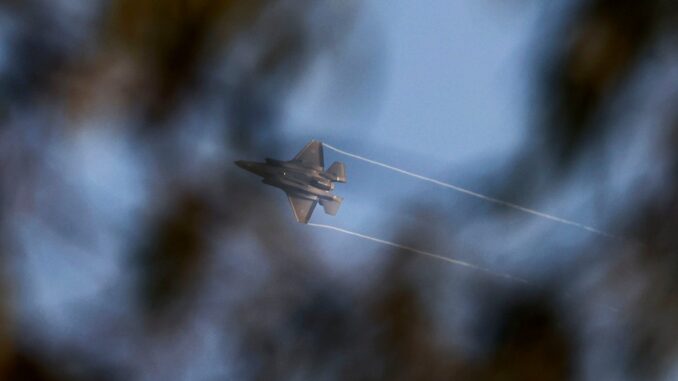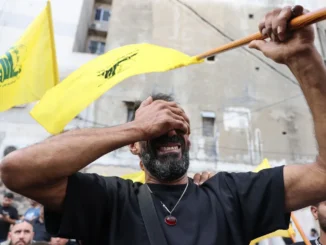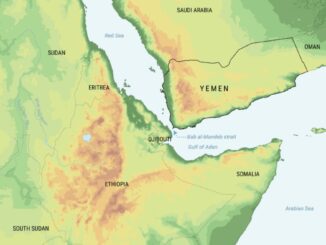
A tense showdown risks spiraling out of control.
A pair of high-profile assassinations has pushed the Middle East closer to the brink of a wider regional war and upended high-stakes cease-fire and hostage negotiations over the war in Gaza.
Fuad Shukr, a senior Hezbollah commander, and Ismail Haniyeh, Hamas’s top political leader, were killed in separate strikes this week in Beirut and Tehran, respectively, dealing a significant blow to the two militant groups and their benefactors in Iran. Israel is reported to be behind the killing of both, raising the risk of a wider war between Israel and Iran with its proxy forces.
“Hezbollah, and now Iran, will likely now have to retaliate,” said Michael Mulroy, a former deputy assistant secretary of defense for the Middle East. “This is the closest the region has been to an all-out conflict in the last 10 months,” he added.
Indeed, on Wednesday, Iranian Supreme Leader Ayatollah Ali Khamenei reportedly ordered Iran to strike Israel directly in response to Haniyeh’s killing on Iranian soil.
U.S. officials, lawmakers, and analysts said neither Israel nor Iran is seeking a full-scale war, which could be orders of magnitude deadlier than Israel’s current war in Gaza against Hamas. But that alone may not prevent one.
“If any war happens, it’s not going to be because of a deliberate declaration of war; it’s going to happen because of things spiraling out of control,” said Bilal Saab, an expert on U.S.-Middle East security issues with Trends Research and Advisory, a consulting group. “Both sides, Israel and the Iran-led axis, do not want such a war, but it’s the ultimate paradox because they continue to pursue provocative acts that are getting us closer and closer to war.”
The latest round of escalations comes as steadfast U.S. support for Israel, a mainstay of U.S. foreign policy for decades, is eroding in the Democratic Party. Israeli Prime Minister Benjamin Netanyahu faces mounting frustration and backlash from Democratic lawmakers over how Israel has carried out its war in Gaza.
Human rights groups charge that Israel has indiscriminately bombed Palestinian civilians and fueled a humanitarian crisis by at times blocking aid from entering Gaza. An estimated 39,000 Palestinians have been killed in the war, according to data from the Palestinian health authority in the Hamas-controlled government. Israel counters that it has sought to limit civilian casualties throughout its war and that Hamas purposefully constructs its military infrastructure under civilian infrastructure, including schools and hospitals, to put civilians in the crosshairs.
Haniyeh’s killing could deal a blow to ongoing but as-yet fruitless efforts by mediators from the United States, Egypt, and Qatar to reach a cease-fire deal between Israel and Hamas and push the latter to release the hostages it took during the Oct. 7, 2023, attacks on Israel that sparked the war. Haniyeh, head of Hamas’s political arm based in Qatar, was viewed as the international face of the militant group and took part in cease-fire and hostage negotiations.
“It makes it much more challenging right now in regards to the hostage negotiations, and it makes a hot situation even hotter,” said Democratic Sen. Ben Cardin, the chairman of the Senate Foreign Relations Committee and an influential proponent of U.S.-Israel ties in Congress.
However, analysts said Haniyeh had limited influence within Hamas and that the final decision for any cease-fire and hostage deal ultimately rests with the group’s top leader in Gaza, Yahya Sinwar, who has so far eluded Israeli authorities.
Top Biden administration officials have urged all parties to de-escalate as Washington and other interlocutors scramble to salvage the ongoing talks.
“Right now, the path that the region is on is toward more conflict, more violence, more suffering, more insecurity,” U.S. Secretary of State Antony Blinken said Thursday during a press conference in Mongolia, where he is on a multi-country tour of the Indo-Pacific. “And to get there, it also first requires all parties to stop taking any escalatory actions.”
Most U.S. and regional officials expect Tehran to retaliate against Israel for Haniyeh’s assassination, which revealed serious flaws in Iran’s security operations. Haniyeh was reportedly killed by a remote-controlled bomb that was snuck into a Tehran guesthouse where he is known to stay when in Iran approximately two months ago—well before his visit to the country this week to attend Iranian President Masoud Pezeshkian’s inauguration.
The New York Times reports that Iran’s military leaders are considering a combined drone and missile attack targeting military sites near Tel Aviv and Haifa, perhaps as part of a coordinated operation that could also include strikes from Iranian proxy groups in Iraq, Syria, and Yemen.
Some officials and analysts predict that Iran’s response will be similar to the broad attack it launched against Israel in April that featured a barrage of ballistic missiles and drones. Such an attack could indicate that Tehran is carefully calibrating its reaction to not trigger a wider war.
Most of the missiles and drones in that attack were easily intercepted by Israel’s Iron Dome system and other air defenses throughout the Middle East coordinated by U.S. Central Command, helping avert costly strikes that could spiral into a wider war.
“Iran will have to think very carefully about what they do next,” said Kenneth McKenzie, a retired U.S. Marine general and the head of Central Command until 2022. “I don’t know if escalation is inevitable.”
While Iran has promised to respond within 48 hours, McKenzie said that Tehran’s past record of retaliation doesn’t indicate that it’s married to that timeline. And in lieu of directly striking inside of Israel, Iran could take a less escalatory option, such as an attack against Israeli assets outside of the region.
As for Israel, it has vowed to kill all of Hamas’s leaders following the group’s Oct. 7 attack that killed some 1,200 Israelis. In addition to the recent killings of Shukr and Haniyeh, the Israel Defense Forces (IDF) confirmed on Thursday that a July airstrike in Khan Younis in the southern Gaza Strip killed Mohammed Deif, the leader of Hamas’s military wing.
Israel said that Shukr, the Hezbollah commander who was killed, was responsible for the rocket attack in the Israel-controlled Golan Heights that killed 12 children over the weekend. He is also alleged to have had a role in the 1983 bombing of a military barracks in Beirut that killed more than 240 U.S. troops.
Israel has refused to comment on any involvement in Haniyeh’s death, but Netanyahu gave a defiant speech at the IDF’s headquarters in Tel Aviv on Wednesday, saying Israel had killed Shukr and warning that “Israel will exact a very heavy price for any aggression against us.”
Yet experts warn that Israel’s military, which is still actively fighting its war in Gaza, could face being overwhelmed if the war expanded to a full-scale conflict with Hezbollah or Iran.
Such a war would be “a whole different ball game,” said Jonathan Lord, a U.S. Middle East policy expert with the Center for a New American Security.
Experts believe Israel would have difficulty sustaining combat operations against Hezbollah, which has significantly more fighters and arms than Hamas and extensive tunnel networks under Lebanon’s southern border with Israel. Israel’s active-duty military is a little less than a third of the size of Iran’s, according to the International Institute for Strategic Studies, a London-based military think tank.
Take the Survey at https://survey.energynewsbeat.com/






